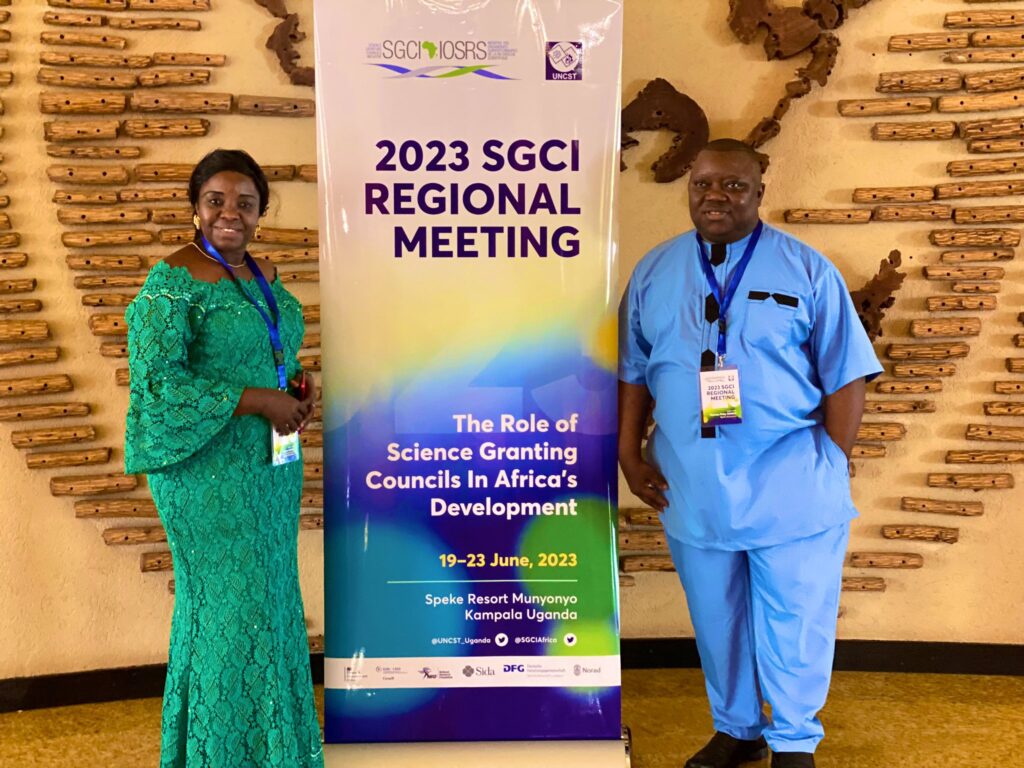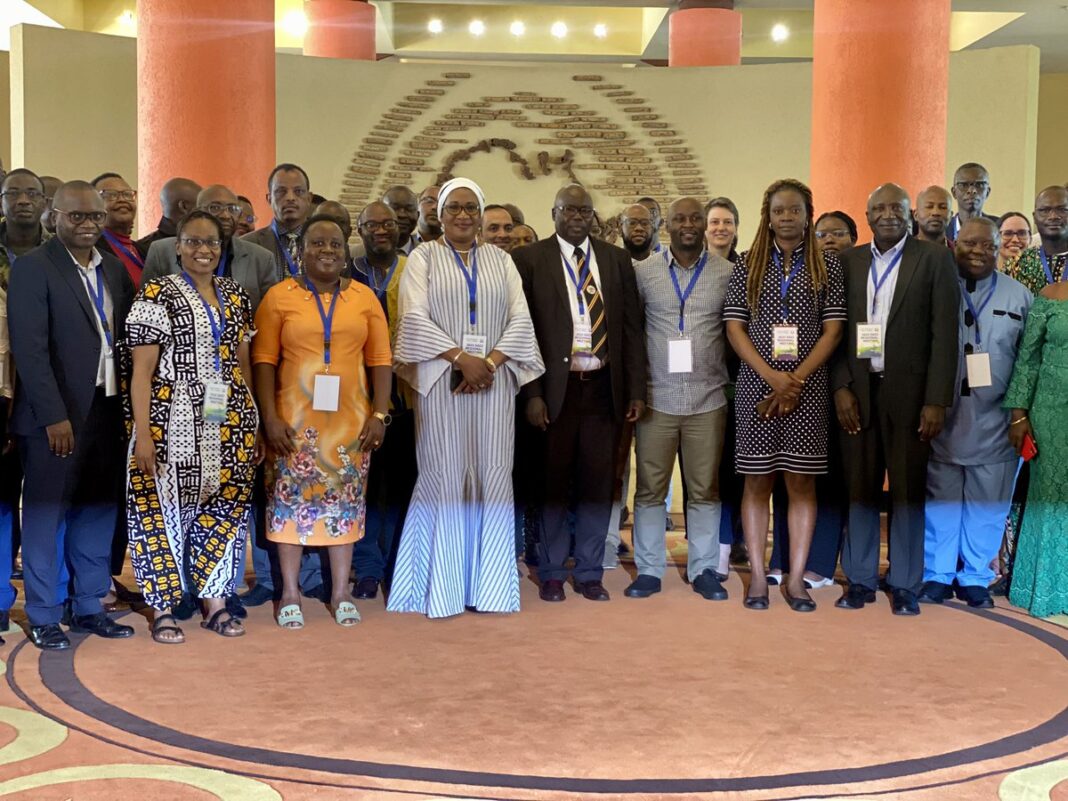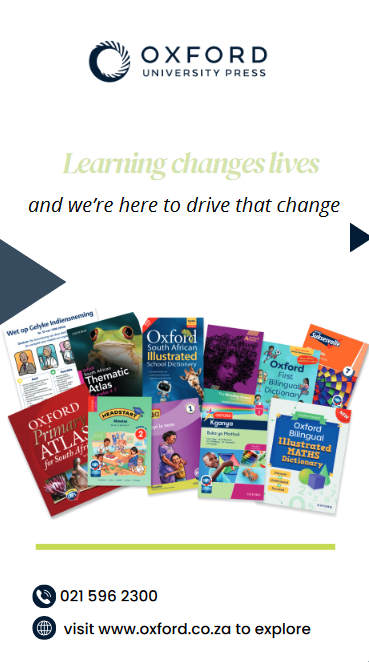EDWIN NAIDU
Monitoring, Evaluation and Learning (MEL) is critical to understanding the challenges facing science councils in Africa, and inspiring them on how to make better decisions because of it, said Rebecca Hanlin, the University of Johannesburg Professor of Innovation and Sustainable Development.
Highlighting the importance of the Science Granting Councils Initiative (SGCI), which has been in place since 2015, she said Africa makes up 15% of the world’s population and 5% of the world’s GDP
But the continent accounts for just 1.3% of the globe’s investment in Research and Development and holds only 0.1% of the world’s patents. Africa has 198 researchers per million people compared to 428 in Chile, 4,260 in Canada, 4,269 in the United Kingdom and 4,663 in the United States.
“Innovation is endemic in Africa, and it has the chance to leapfrog other continents, but we do not have the systems and knowledge in place to achieve this yet,” she said.
Referring to the launch of the Uganda research outlook report, Hanlin said MEL helps understand what isn’t going as well and helps plan on how to solve those challenges and improve.
“The best-performing organisations are those that can look at challenges and see them as great opportunities for growth. MEL is the tool to enable that growth,” she said.
According to the Uganda research outlook report produced by the Uganda National Council for Science and Technology (UNCST), digital skills must be adapted to rapidly changing needs via Technical Vocational Education and Training.
The 2022 National Research Outlook Report, due for release in Kampala tomorrow by Dr Monica Munenero, the Minister for Science, Technology, and Innovation, emphasised that Information, Communications Technology specialist training was a growing area within the TVET sector, offering new degrees and programs.

The skills acquired through such programs can advance a career at least as much as receiving a university degree. Providing theoretical education and on-the-job training can be particularly rewarding, said the report entitled Unlocking Uganda’s Research Potential for Long-Term Development and Prosperity.
The research outlook report was unveiled at the week-long Science Granting Councils Initiative Regional Meeting in Kampala, Uganda, which began on Monday to strengthen the capacity of science granting councils.
Present at the SGCI Regional Meeting were representatives of science councils from Namibia, Ghana, Sierra Leone, Uganda, Tanzania, Senegal, Côte d’Ivoire, Burkina Faso, Mozambique, Zimbabwe, Ethiopia, Zambia, Malawi, Kenya and Botswana.
TVET in Uganda is headed by a Commissioner and four assistant commissioners in charge of Technical & Vocational Education and Training, overseeing operations and management of 146 Government TVET Institutions and over 800 privately owned institutions.
The report said dual apprenticeship systems, centred on the idea of acquiring relevant skills and experience, can be beneficial.
More generally, because of the digital skills that become obsolete too quickly, TVET institutions should strive to teach broader specialisations and adaptable skills for fast-changing jobs, provide tools on how to manage one’s career and compose one’s qualification, and prepare for the market and for life rather than for a lifetime job.
Aligning curriculum to industry and employer needs and mapping curricula to learning outcomes relevant to labour market needs are keys to the successful delivery of skills that are in great demand and also to improving worker employability. The TVET system should take advantage of existing digital learning tools and resources and explore options for innovative, digital pedagogical approaches such as simulators and augmented or virtual reality.
The development and regular review and update of qualification frameworks can provide relevant support to validation and recognition of prior learning, including informal digital learning. For example, recognising competencies acquired through online coding courses may contribute to resolving coding skills shortages in Uganda.
In the report, the Council said that although it has not been a significant policy priority in the drive towards knowledge-led growth, vocational training must be seen as a reservoir for research.
Whereas there have been stellar examples from around the world on the role and contribution of vocational education as a driver of innovation and growth, this has yet to be the case in Uganda.


But, there is an emerging interest in vocational education due to the new opportunities that this type of education can provide. Between 2016-2019, for instance, 4,479 male students registered for physical and biological science diplomas more than the females, who were 1,825 students.
The UNCST has also embarked on a skilling program aimed at amplifying the contribution of targeted skilling of youths in new value chains for employment and sustainable development. Quality human capital or talent is needed to promote Uganda’s growth and position its excellence in the global marketplace.
Talent is also unconditional in pursuing STI targets and sustaining STI development towards building an efficiency-driven economy. Science, Technology, Engineering and Mathematics (STEM) talent in the country has been enhanced by intensifying postgraduate programs at Higher Education Institutions (HEIs), which help promote R&D initiatives and provide a skilled workforce.
Besides the mainstream education system, the private sector has also positively contributed to the STEM education ecosystem of the country by increasing the number of STEM programs being provided.
INSIDE EDUCATION










